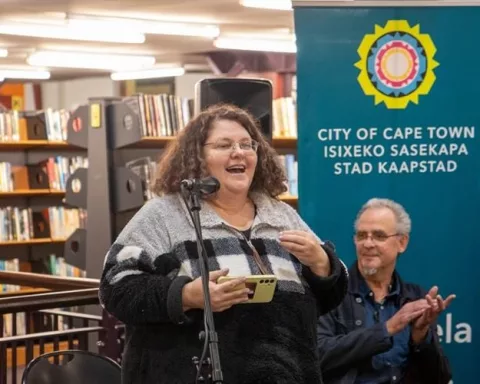South Africa’s Freight Logistics Roadmap aims to improve the performance of the country’s ports and rail network, with the government committed to maintaining public ownership. The government is focused on reforming the logistics system to increase efficiency, attract private investment, and promote competition. The establishment of the National Logistics Crisis Committee and government engagement with the private sector highlights the collaborative approach towards enhancing the logistics system, with no intention to privatize strategic national assets. It is important to distinguish fact from fiction and appreciate the government’s dedication to improving the lives of its citizens.
What is South Africa’s Freight Logistics Roadmap and the government’s position on public ownership?
The Freight Logistics Roadmap aims to improve the performance of South Africa’s ports and rail network, with the government committed to maintaining public ownership. The government’s long-term strategy involves reforming the logistics system to increase efficiency and promote competition, attracting private investment while ensuring a reliable, efficient, and world-class logistics system. Private sector participation supports a collaborative approach, enhancing the logistics system.
Addressing False Impressions Surrounding the Freight Logistics Roadmap
Recently, there has been a significant amount of confusion caused by misleading media reports about the anticipated Freight Logistics Roadmap. This confusion was primarily due to a leaked draft version of the roadmap, leading to speculation that the South African Presidency intends to privatize Transnet, the state-owned freight and rail operator. However, these assumptions are far from accurate.
In his State of the Nation Address (SONA) in 2023, President Cyril Ramaphosa pledged to develop a roadmap for a freight logistics system. This plan aimed to improve the performance of the country’s ports and rail network, thereby accelerating economic growth. To achieve this goal, several government entities, including the Presidency, the Department of Transport, the Department of Public Enterprises, and the National Treasury, are working together to refine the roadmap. In keeping with established procedures, the plan will undergo stakeholder consultation and cabinet decision-making.
Considering the confusion arising from media reports, it is crucial to clarify the South African government’s position. They have no intention to privatize the country’s port and rail infrastructure. Instead, these assets are considered strategic national assets, and the government is committed to maintaining public ownership.
Tackling Challenges Facing the Freight Logistics System
In order to address the immediate challenges that the freight logistics system faces, the National Logistics Crisis Committee (NLCC) has been established. These challenges have significantly limited exports and hampered investment and job creation in affected sectors. The NLCC is responsible for addressing these issues and has identified several interventions. These measures include upgrading equipment and infrastructure, enhancing operational performance, increasing rolling stock availability, and securing the rail network.
It is evident that the government is leading these efforts across all sectors and actively engaging with business and social partners in prioritized areas where necessary. Instead of privatizing, the long-term strategy involves reforming South Africa’s logistics system to increase efficiency and promote competition, ultimately attracting private investment. These reforms are outlined in the National Rail Policy and other cabinet-approved policy documents, paving the way for substantial new investments to revitalize the nation’s logistics system.
It is important to emphasize that private sector participation does not equal privatization of public assets. Nor does it diminish the state’s role in ensuring a reliable, efficient, and world-class logistics system. Rather, it supports a collaborative approach, with the government working closely with the private sector to enhance the logistics system.
Separating Fact from Fiction Regarding the Freight Logistics Roadmap
This article aims to serve as a reminder that misinformation can easily lead to confusion and misconceptions. As we await further information on the Freight Logistics Roadmap, it is essential to understand that the government’s vision is not privatization but improvement and development. By openly addressing false information, the government reiterates its commitment to keeping strategic national assets under public ownership while actively seeking private sector involvement to strengthen South Africa’s freight logistics system.
In conclusion, the South African government’s goal for the Freight Logistics Roadmap is to enhance the performance of the nation’s ports and rail network, leading to economic growth. The government’s focus on public ownership of strategic assets, combined with efforts to attract private investment and foster competition, promises a bright future for the country’s freight logistics industry. As the situation evolves, it is vital to distinguish between fact and fiction and appreciate the government’s dedication to improving the lives of its citizens.
What is the National Logistics Crisis Committee (NLCC) and what are their responsibilities?
The National Logistics Crisis Committee (NLCC) was established to address immediate challenges facing South Africa’s freight logistics system. Their responsibilities include improving equipment and infrastructure, enhancing operational performance, increasing rolling stock availability, and securing the rail network.
What is the government’s long-term strategy for South Africa’s logistics system?
The government’s long-term strategy involves reforming South Africa’s logistics system to increase efficiency, promote competition, and attract private investment while maintaining public ownership of strategic assets.
What is the government’s stance on private sector involvement in the logistics system?
The government is actively seeking private sector involvement to strengthen South Africa’s freight logistics system, but they have no intention of privatizing strategic national assets. Private sector participation supports a collaborative approach, with the government working closely with the private sector to enhance the logistics system.
What is the purpose of the Freight Logistics Roadmap?
The Freight Logistics Roadmap aims to improve the performance of South Africa’s ports and rail network, leading to economic growth. It is part of the government’s long-term strategy to reform the logistics system, promote competition, and attract private investment while maintaining public ownership of strategic assets.
What government entities are involved in developing the Freight Logistics Roadmap?
Several government entities, including the Presidency, the Department of Transport, the Department of Public Enterprises, and the National Treasury, are working together to develop the Freight Logistics Roadmap.
What is the role of stakeholder consultation and cabinet decision-making in developing the Freight Logistics Roadmap?
The Freight Logistics Roadmap will undergo stakeholder consultation and cabinet decision-making as part of established procedures.
What challenges does the freight logistics system face?
The freight logistics system faces immediate challenges such as limited exports, hampered investment, and job creation in affected sectors. The NLCC has been established to address these challenges.
What is the government’s commitment to public ownership of strategic assets?
The government is committed to maintaining public ownership of strategic national assets such as South Africa’s ports and rail infrastructure. They have no intention of privatizing these assets.








